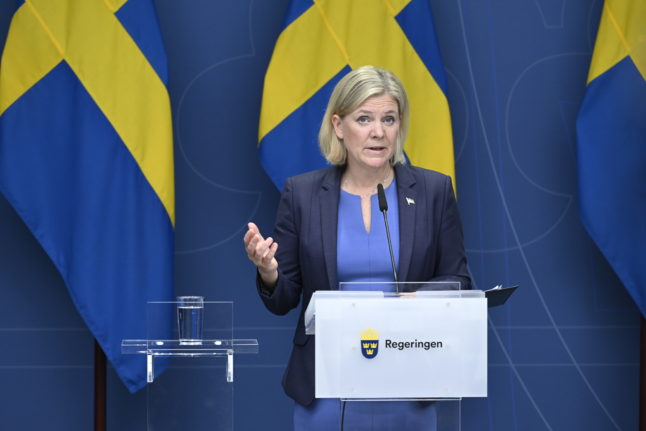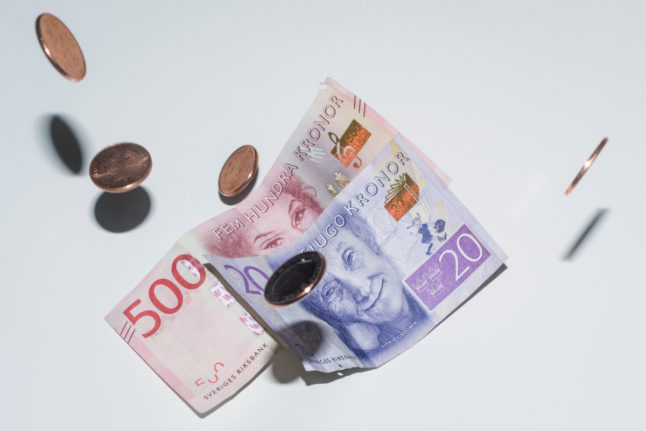“It’s a thin majority, but it is a majority, so tomorrow I will therefore request my dismissal as prime minister and responsibility for the process will pass to the Speaker and the Parliament,” Swedish Prime Minister Magdalena Andersson said in a press conference on Wednesday evening.
“This is going to be a tough and complicated parliamentary term,” she said. “But the government which is going to run Sweden is going to have a good starting point.”
She then ran through her party’s achievements in government and pointed to the fact that her party gained votes in the campaign.
“We Social Democrats had a strong election campaign with a strong election result. The Social Democrats are not only Sweden’s biggest party, but the biggest party in Northern Europe,” she said.
With only twenty districts left to count, the four parties supporting Ulf Kristersson for prime minister have 176 mandates to the 173 mandates held by the four parties backing Andersson. One mandate moved from the Social Democrats to the Moderates in the Wednesday count of late arriving advance votes, and overseas votes.
Sweden’s speaker Andreas Norlén is expected to nominate Ulf Kristersson as the first person to go up for a vote in parliament to be Prime Minister. Kristersson needs at least 175 MPs to either vote for him or abstain to be appointed.
Until then, Andersson will lead a caretaker government. In her speech, she said she would then stay on to lead her party in opposition.
Moderate Party leader Ulf Kristersson said in video posted on Facebook that he was “now beginning work to set up a new, dynamic government”.
“Sweden has an election result. The voters have spoken,” he said. “The Moderates and the other parties on my side had got the mandate for change that we asked for,” he wrote. “I will now start the work to set up a new, dynamic government.”
Tack för förtroendet – nu får vi ordning på Sverige! pic.twitter.com/xUZh0lYT86
— Moderaterna (@moderaterna) September 14, 2022
The party’s group leader, Tobias Billström, was the first to announce victory, writing “We won!!!” in a tweet which he then immediately deleted. Ebba Busch, leader of the Christian Democrats, then published a victory tweet.
“We have an election result and the Swedish people have voted for a change in government,” she wrote.
Vi har ett valresultat och svenska folket har röstat för ett maktskifte!
Mitt parti och jag kommer att kämpa för ett Sverige där alla är trygga och fria att forma sina liv.
Nu ser jag fram emot konstruktiva samtal, samarbete, regeringsbildning och arbetet för ett bättre Sverige.— Ebba Busch (@BuschEbba) September 14, 2022
Sweden Democrat leader Jimmie Åkesson, whose party is the unquestioned winner in the election, wrote in a post on Facebook that “now the work begins to make Sweden good again”.
“These election successes, both for the blue-yellow side and for our party, bring a heavy responsibility towards the voters, he said, “and that responsibility is going to be handled in the best way and with the deepest respect.”
“Now we can bring an end to the failed Social Democratic politics, which has continued to lead the country in the long direction for eight years. It’s time to start rebuilding public safety, welfare, and unity. It’s time to put Sweden first. The Sweden Democrats are going to be a constructive and powerful force in this work.”



 Please whitelist us to continue reading.
Please whitelist us to continue reading.
Member comments